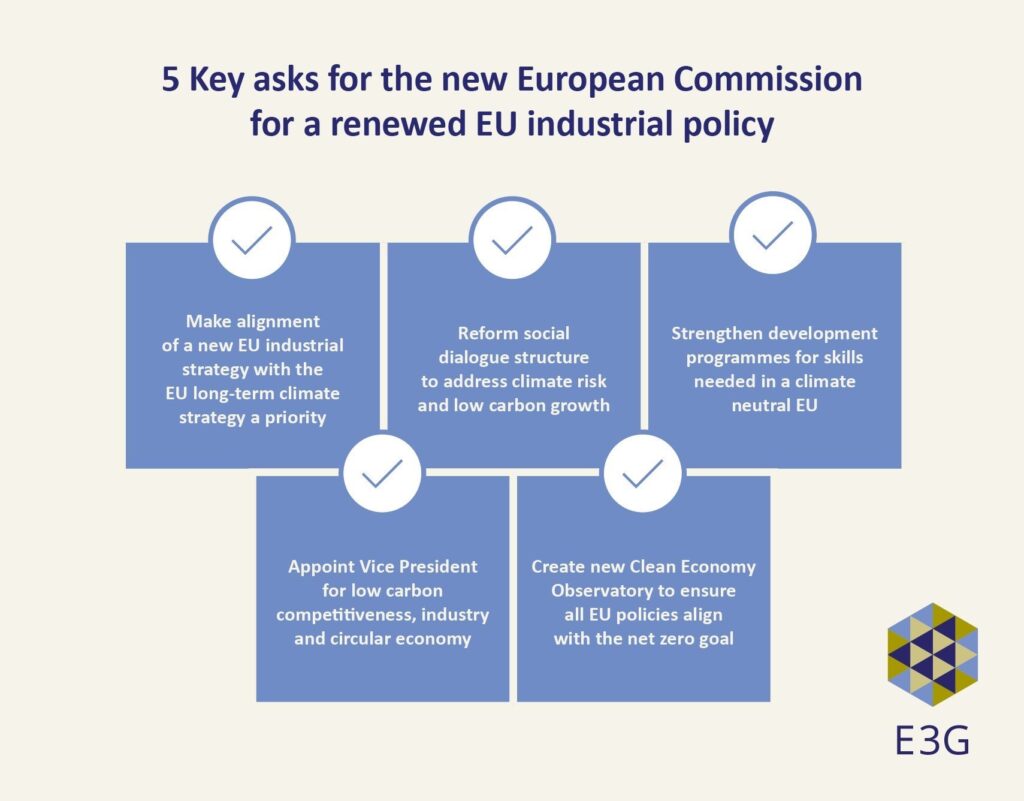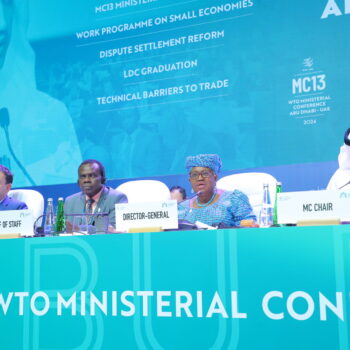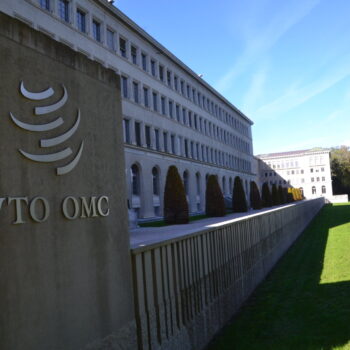Industrial policy is back en vogue in Europe and likely to become a major political priority for the incoming European Commission. With this report, E3G aims to inform the new Commission and European Parliament as well as the 2019 EU industrial strategy on what is needed to modernize European industry in line with our climate objectives.
The report demonstrates that, despite some progress made, the industrial policy debate is insufficiently linked up to European and global decarbonisation efforts, putting Europe at risk of missing opportunities as well as systematically underestimating climate risk for example to supply chains. In fact, the current debate is primarily focused on competition from high carbon industry, making Europe’s industry numb to the very price signals that could help it plan towards a carbon neutral way of manufacturing. EU industry needs to get ahead of the competition on low carbon manufacturing, powered by cheap renewables and storage.
In order to modernise its industry, the EU needs to align the renewal of its industrial policy with Europe’s vision for climate neutrality. To answer the pressing need to decarbonise and reduce climate risks, it also needs to harness the benefits of disruptive change from technological advancement in artificial intelligence, digitalisation and 3D printing.
The social impacts of this transition will be fundamentally different from those of phasing out coal and other fossil fuels. These sectors and its jobs will disappear completely, whereas industry has a key role in a net zero economy. As it needs to link its transition to the broader developments in automation and digitalization, the Just Transition of industry will need to be embedded in broader efforts to restore and modernise Europe’s social contract. At the EU level, this means strengthening skills development programmes and reforming the social dialogue structure to start addressing climate risk and low carbon growth opportunities.
Getting to net zero will require significant up-front investment. This investment will need to come from a reformed EU budget as well as private finance. Firstly, agreeing to an EU budget later this year that ensures at least 40% climate spending, climate proofing and exclusion of fossil fuels in all spending programmes will be key to supporting the industrial transformation. Secondly, the next Commission will need to continue and expand the work it has done on Sustainable Finance, most notably on the new taxonomy to help guide investors to environmentally sustainable activities and new disclosure rules. The rules on corporate reporting will need to be updated by the new Commission in order to enhance transparency on sustainability information, including corporate low carbon strategies.
In order to respond to the growing recognition of the climate emergency and the need to quickly transition to a zero carbon economy, the European Commission’s structures need to be made fit for purpose. Firstly, fundamental to this will be appointing a Vice President for low carbon competitiveness, industry and circular economy. She/he should be reporting to a first Vice President for Sustainable Development who will ensure the new industrial strategy puts the EU firmly on track to reducing its emissions to net zero well before 2050.
Secondly, a new Inter-Institutional Agreement on Sustainable Development, the Rule of Law and Fundamental Rights should be agreed upon. This will ensure a coherent approach between the three EU Institutions and the development of the necessary new instruments to deliver. This should be supported by the creation of a new Clean Economy Observatory which will ensure all EU policies align with the net zero goal.

Read the full report, The race to decarbonise industry: how to keep the EU in pole position, here.


